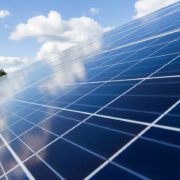Tax Incentives for Renewable Energy: The Residential Clean Energy Credit Decoded
Revamping your home by incorporating clean energy solutions like solar panels, geothermal installations, wind turbines, battery storage systems, and various eco-friendly alternatives not only contributes to a sustainable future but may also render you eligible for the “Residential Clean Energy Tax Credit” on a yearly basis. This credit serves as an incentive for homeowners to embrace renewable energy sources, ultimately reducing environmental impact and cutting down long-term energy costs.
Let’s take a deeper dive to understand the criteria and advantages associated with these transformative investments. Here are some important things to know about the Residential Clean Energy Credit:
What is the Residential Clean Energy Credit?
Equal to 30% of the cost of improvements using qualified clean energy property
- These improvements need to be installed anytime between 2022 and 2032
- The home must be located in the United States
- The credit has no annual or lifetime dollar limit except for credit limits for fuel cell property
- The fuel cell property is limited to $500 for each half-kilowatt of capacity
- If there’s more than one person who lives in the home, then the combined credit can not exceed $1,667
- The credit can be claimed every year until the credit phase-out begins in 2033
- The credit is nonrefundable, so the credit amount can not exceed the amount owed in tax—but you can carry forward any excess unused credit balance to reduce the amount of tax you may owe in future years
Who Qualifies for the Residential Clean Energy Credit?
- Credit applies to any new or existing homes located in the United States
- Taxpayer who improves their main homes whether they rent or own the home
- Their main home is the home where they spend most of their time
- Landlords or property owners can NOT claim this credit if they do not live in the home
What About Those Who Use Their Home for Business?
- If the property is only for business use, then you can NOT claim the credit
- If the property is used for business, up to 20% can receive the full credit
- If the property is used for business for more than 20%, then the credit will be based on the share of expenses for nonbusiness use
What Improvements/Expenses Qualify for the Credit?
Some common expenses that qualify for the credit may include:
- Solar electric panels
- Solar water heaters
- Fuel Cells
- Geothermal heat pumps
- Wind turbines
- Battery storage technology
- Labor costs, including preparation, assembly, installation, etc.
It’s important to note that used or previously owned property does NOT qualify.
What are the Certification Requirements to Qualify as a Clean Energy Property?
Any qualified clean energy property must meet specific certification requirements to qualify for the credit, such as:
Solar Water Pumps
Certified by the Solar Rating Certification Corporation
Geothermal Heat Pumps
Must meet Energy Star requirements that are in effect on the date that the equipment was purchased.
Battery Storage Technology
Required to have the capacity of at least three kilowatt hours.
How to Claim The Credit?
Taxpayers should file Form 5695, which is the form for Residential Energy Credits. This form can be filed with your tax return in the year when the property was installed, which is not always the same as the purchase date.










